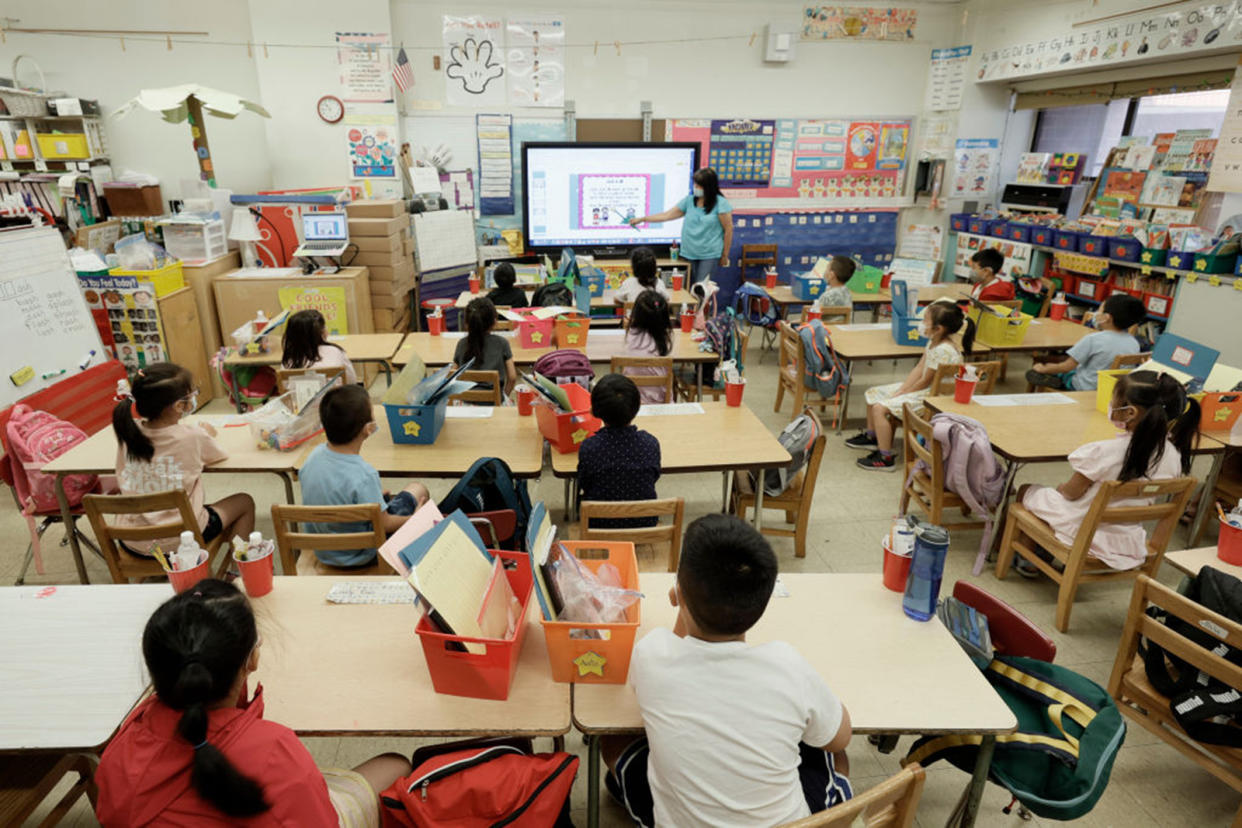NYC schools plan suggests strategies for smaller class sizes, including more remote learning

NEW YORK — New York City public schools won’t cap enrollment at popular schools to comply with the class size law this fall, education officials announced Tuesday — but suggested remote instruction and other strategies to bring more classes to the required levels.
The local Education Department has directed each of the city’s dozens of school districts to increase its share of classes in compliance by 3%, according to a draft class size plan. The law currently being phased in will limit classes between 20 and 25 students depending on grade level.
And while significant enrollment proposals aren’t part of the 50-page plan, principals were given about a dozen options to meet new targets, including to rebalance their classes, repurpose space for classrooms, and even consider using virtual learning to reduce the impact on space.
“Our draft class size reduction plan for the 2024-2025 school year outlines clear, actionable steps to ensure we remain in compliance with the class size law,” Schools Chancellor David Banks said in a statement. “Further, it provides targeted support for high-need schools and supports robust teacher recruitment – powered by $182 million in new school funding.”
Of the increase in state funding, $137 million is earmarked for high-need schools that already have the necessary space to shrink class size. A couple dozen schools that need one more classroom are working with the city to repurpose other space in the buildings by the fall.
To help school districts meet the new marks, superintendents can require schools meet individual targets. At the school level, principals can reallocate funding to pay for teachers, offer staggered start times for students, or share instruction between schools occupying the same building, among other proposals.
Still, education officials do not expect to implement major changes this fall. The law requires a citywide compliance rate of 40% next school year, which the system is already near.
All class sizes have to fall below the caps by September 2028.
While some districts in neighborhoods including Ocean Hill-Brownsville and Mott Haven are in good shape for compliance, others — such as Bayside, Forest Hills and Staten Island — have more over crowded schools, data show.
The city has already begun to analyze the impacts of substantial enrollment policy changes and increased the lower end of its cost estimate to $1.4 billion, according to the plan. The projection covers the cost of additional teachers, and does not account for new space needs and some of the teacher recruitment programs education officials have proposed.
While the majority of schools should be able to the meet the class size mandates in the space they already have, the city estimates 537 schools need extra space to comply if enrollments stay the same.
The draft plan requires sign-off by teachers and principals unions.
_______


